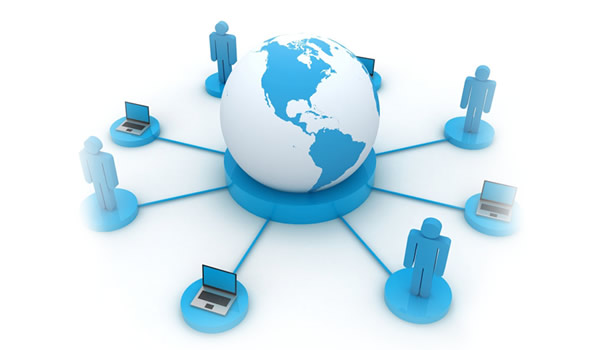
By W. Michael Cox & Richard Alm
Economic change unleashes powerful forces. We can stubbornly resist them and cling to the status quo, but at best, that ushers in a slow but inevitable decline. A better approach lies in understanding the forces that periodically remake the economy, so we can seize the emerging opportunities they bring. This strategy has worked in the past, and it will work today.
A significant force in recent decades has been globalization. It has brought with it a surge in outsourcing, the shorthand term for businesses’ cutting jobs in the United States and moving production overseas to gain access to lower-cost labor. Many Americans view this development as a scourge, meaning the business practices of Mitt Romney’s private-equity firm, Bain Capital, have become fodder for the presidential campaign’s mudslinging.
Outsourcing makes for perfect political posturing — a quick-jab sound bite, serving up big business and foreign workers as villains and unemployed Americans as victims. But the economic reality of outsourcing isn’t so black and white. The issue goes far beyond the simple fact of job losses and touches on the broader realities of trade, basic human rights, and economic progress.
In economic terms, outsourcing jobs differs little from importing goods. Both involve using labor abroad rather than at home — so there’s no logical consistency in cursing one while tolerating the other. In 2011, America imported $2.6 trillion in goods and services, suggesting that outsourcing has just a tiny share of the effect foreign trade overall has on American jobs.
DIMAN, Lebanon: The Council of Maronite Bishops launched a scathing attack on Prime Minister Najib Mikati’s government Wednesday, warning that the …
BEIRUT: Regional powers are pouring in money and guns, jihadists are joining rebels battling to overthrow Bashar al-Assad, while his own …
President Michel Suleiman on Wednesday threw his weight behind the Lebanese army’s decision to bring to trial those who target the …
Khazen History


Historical Feature:
Churches and Monasteries of the Khazen family

St. Anthony of Padua Church in Ballouneh
Mar Abda Church in Bakaatit Kanaan
Saint Michael Church in Bkaatouta
Saint Therese Church in Qolayaat
Saint Simeon Stylites (مار سمعان العامودي) Church In Ajaltoun
Virgin Mary Church (سيدة المعونات) in Sheilé
Assumption of Mary Church in Ballouneh
1 - The sword of the Maronite Prince
2 - LES KHAZEN CONSULS DE FRANCE
3 - LES MARONITES & LES KHAZEN
4 - LES MAAN & LES KHAZEN
5 - ORIGINE DE LA FAMILLE
Population Movements to Keserwan - The Khazens and The Maans
ما جاء عن الثورة في المقاطعة الكسروانية
ثورة أهالي كسروان على المشايخ الخوازنة وأسبابها
Origins of the "Prince of Maronite" Title
Growing diversity: the Khazin sheiks and the clergy in the first decades of the 18th century
Historical Members:
Barbar Beik El Khazen [English]
Patriach Toubia Kaiss El Khazen(Biography & Life Part1 Part2) (Arabic)
Patriach Youssef Dargham El Khazen (Cont'd)
Cheikh Bishara Jafal El Khazen
Patriarch Youssef Raji El Khazen
The Martyrs Cheikh Philippe & Cheikh Farid El Khazen
Cheikh Nawfal El Khazen (Consul De France)
Cheikh Hossun El Khazen (Consul De France)
Cheikh Abou-Nawfal El Khazen (Consul De France)
Cheikh Francis Abee Nader & his son Yousef
Cheikh Abou-Kanso El Khazen (Consul De France)
Cheikh Abou Nader El Khazen
Cheikh Chafic El Khazen
Cheikh Keserwan El Khazen
Cheikh Serhal El Khazen [English]
Cheikh Rafiq El Khazen [English]
Cheikh Hanna El Khazen
Cheikha Arzi El Khazen
Marie El Khazen